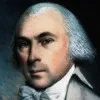Being thus continually employ’d in serving all Parties, Printers naturally acquire a vast Unconcernedness as to the right or wrong Opinions contain’d in what they print; regarding it only as the Matter of their daily labour: They print things full of Spleen and Animosity, with the utmost Calmness and Indifference, and without the least Ill-will to the Persons reflected on; who nevertheless unjustly think the Printer as much their Enemy as the Author, and join both together in their Resentment.
Benjamin Franklin (1706-1790) American statesman, scientist, philosopher, aphorist
“Apology for Printers,” Philadelphia Gazette (1731-06-10)
(Source)
Quotations about:
press
Note not all quotations have been tagged, so Search may find additional quotes on this topic.
Good news goes unnoticed. This is a well-known property of the press in the free world. Improvements are never dramatic. Life improves slowly and goes wrong fast, and only catastrophe is clearly visible.
Edward Teller (1908-2003) Hungarian-American theoretical physicist
The Pursuit of Simplicity (1980)
(Source)
Fascism, after all, is not only a historical term; it describes a modern style of authoritarian rule that seeks to mobilize the masses by appealing to nationalism, xenophobia, and populist resentment. Its trademark is the use of democratic procedure even as it seeks to destroy the substantive values of democracy from within. It disdains the free press and seeks to undermine its credibility in the public sphere.
Peter E, Gordon (b. 1966) American intellectual historian
“Why Historical Analogy Matters,” New York Review of Books (7 Jan 2020)
(Source)
Was none who would be foremost
To lead such dire attack;
But those behind cried “Forward!”
And those before cried “Back!”Thomas Babington Macaulay (1800-1859) English writer and politician
“Horatius,” st. 50, Lays of Ancient Rome (1842)
(Source)
Life is not made up of dramatic incidents — even the life of a nation. It is made up of slowly evolving events and processes, which newspapers, by a score of different forms of emphasis, can reasonably attempt to explore from day to day. But television news jerks from incident to incident. For the real world of patient and familiar arrangements, it substitutes an unreal world of constant activity, and the effect is already apparent in the way which the world behaves. It is almost impossible, these days, to consider any problem or any event except as a crisis; and, by this very way of looking at it, it in fact becomes a crisis.
Without debate, without criticism, no Administration and no country can succeed — and no republic can survive. That is why the Athenian lawmaker Solon decreed it a crime for any citizen to shrink from controversy. And that is why our press was protected by the First Amendment — the only business in America specifically protected by the Constitution — not primarily to amuse and entertain, not to emphasize the trivial and the sentimental, not to simply “give the public what it wants” — but to inform, to arouse, to reflect, to state our dangers and our opportunities, to indicate our crises and our choices, to lead, mold, educate and sometimes even anger public opinion.
John F. Kennedy (1917-1963) US President (1961-63)
Speech, American Newspaper Publishers Association (27 Apr 1961)
(Source)
The country’s 24 hour political pundit perpetual panic conflictinator did not cause our problems but its existence makes solving them that much harder. The press can hold its magnifying up to our problems, bringing them into focus, illuminating issues heretofore unseen — or they can use that magnifying glass to light ants on fire, and then perhaps host a week of shows on the sudden, unexpected, dangerous flaming ant epidemic. If we amplify everything we hear nothing.
If one morning I walked on top of the water across the Potomac River, the headline that afternoon would read: “President Can’t Swim.”
Everybody wrings their hands about Fox News. You know, “fair and balanced? Why, that’s snide!” Yeah, okay, maybe they’re not fair and balanced, but CNN used to have the slogan “You Can Depend on CNN”. Guess what? I watch it, no you can’t. So what’s the difference?
A popular government without popular information, or the means of acquiring it, is but a prologue to a farce or a tragedy; or, perhaps, both. Knowledge will forever govern ignorance. And a people who mean to be their own governors must arm themselves with the power which knowledge gives.
The speed of communications is wondrous to behold. It is also true that speed can multiply the distribution of information that we know to be untrue. The most sophisticated satellite has no conscience. The newest computer can merely compound, at speed, the oldest problem in the relations between human beings and in the end the communicator will be confronted with the old problem of what to say and how to say it.
Edward R. Murrow (1908-1965) American journalist
Speech, The Family of Man Award, The Protestant Council of New York (Oct 1964)
(Source)
His last public speech. Reprinted in Alexander Kendrick, Prime Time: The Life of Edward R. Murrow (1969).














